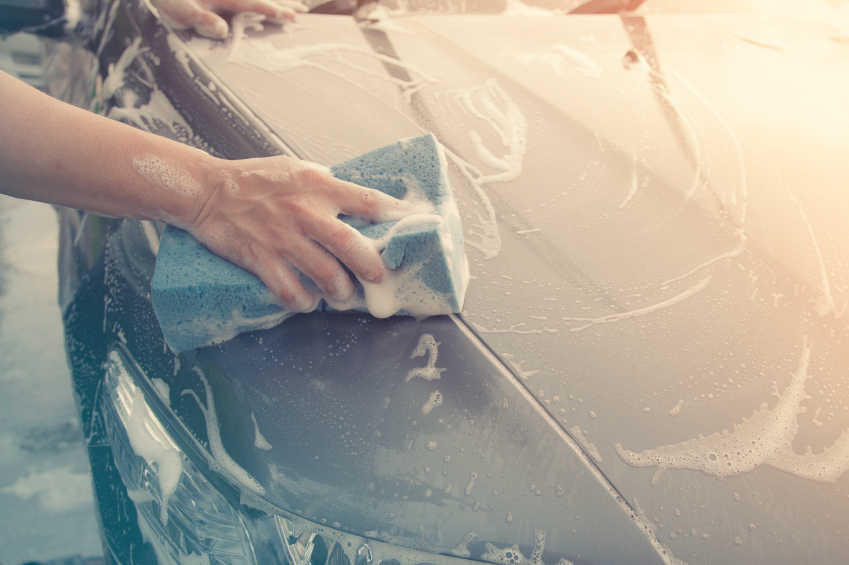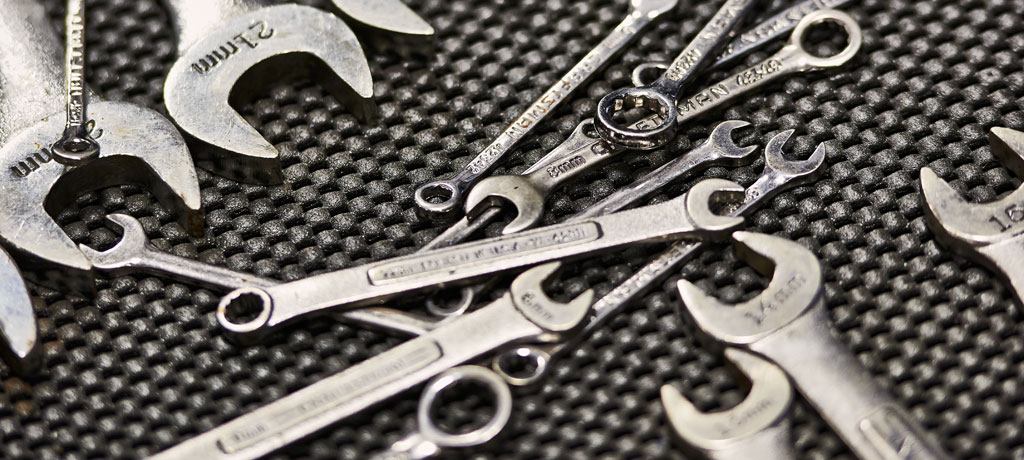Can You Use Dish Soap to Wash Your Car?

We’ve all wondered. There’s no shame in asking the common question: Can you wash your car with dish soap? There are many opinions on this one, but the most accurate answer is no. Let’s take a deeper look at why.
Is Dish Soap Safe to Wash a Car?
If you think about what dish soap is made for, you’ll understand why it’s not good for your car. While dish soap does a good job removing grease and caked-on food, it’s an abrasive cleaner.
Using an abrasive soap on something like car paint accelerates the oxidation process and gives the car a dull look. Dish soap also breaks down a car’s wax coat and can be tough on rubber.
Are Other Soaps Safe for Cars?
Now that you know not to use dish soap to wash a car, what does that leave you with? Are other household soaps safe for washing cars? The answer to this question is also no.
Laundry soap, hand soap, and other household cleaners are also off-limits. Although it may seem like all soaps do the same thing, each has a special design and makeup to clean a unique material or surface.
Other types of soap are not pH-balanced for use on car paint. They often contain additional abrasives and chemicals that can destroy the wax, sealant, top coating, and paint on your vehicle’s exterior. These essential materials may appear as oil, dirt, and grime, which dish or laundry soap works hard to remove from other surfaces.
Dish soap and household cleaners are also harder to rinse off your car. The residue can remain on the surface, even if you think you’ve rinsed it well, continuing to cause damage. To get the results you want, you’ll simply need car soap.
What Soap Is Best to Wash a Car?
Now that we’ve ruled out all the other soaps for washing your car, what makes car soap so special? Why do you need car soap?
Car soap’s chemical design can target and break down the types of dirt and grime your car encounters daily. From bird droppings to dirt, pollen to road oil, the contaminants are endless. Using car soap to wash your car allows the hardworking additives to loosen and remove the dirt without taking your wax and paint with it.
Car soap contains more lubricant, which you’ll notice when you move it behind your fingers. The slick formula is less abrasive and much better for your car’s surface. The lubricant additives help trap dirt away from the surface of your vehicle, keeping the debris from scratching and causing damage as you try to remove it.
Lastly, your garden hose is powerful enough to give your car a clean rinse after using car soap. The suds slip away without leaving residue behind. Dish soap isn’t so easy to rinse off, and leaving soap behind can be just as destructive as dirt and grime.
What Car Cleaning Products Will You Need Besides Soap?
The following products will help you achieve a sparkling clean.
- Sponge or washing mitts made of sheepskin or microfiber
- A brush or additional sponge for tires
- Multiple buckets—one for soapy water and one for plain water
- Wheel cleaner
- Microfiber drying towel, chamois cloth, or squeegee
- Bug and tar remover
- Wax, spray or rub-on (optional)
- Polish (optional)
Car Wash Tips
These tips can also aid in your efforts to protect your vehicle from damage when you wash it.
- Always wash your car in the shade to avoid premature drying (sunlight can create water spots that stain your car’s exterior).
- Avoid water spots by keeping your car wet until you’re ready to dry it off. Don’t let it air dry.
- Ensure all windows and doors are shut, and don’t squirt water under the hood.
What’s the Best Way to Wash a Car?
Weekly car washes can not only make your vehicle look better but also last longer. However, there are wrong and right ways to wash your car. At Meineke, we want to help our customers maintain their vehicles and save money.
Not using the proper soap, equipment, or technique can do more harm than good. You’re off to a great start when you use the correct auto soap for your vehicle and follow these additional tips:
- Give your car a good rinse before you start scrubbing.
- Pre-treat stains and be generous with car soap and water. They make your job easier.
- Keep your soapy water fresh and clean. Change it out if it shows dirt and discoloration, and rinse your microfiber towel or mitt before continuing.
- Scrub in straight lines, not circles.
- Always dry off your car.
Can You Air Dry a Car After Using Car Soap?
Even if you use car soap to wash your car, it’s still important to take that extra step and dry it off. Air drying after washing can create water spots. Carefully dry your vehicle with a car squeegee to remove most of the water. After that, use a microfiber towel over everything, keeping it flat and moving it in straight lines with no circular motions.
Should You Use Polish or Wax?
You should only use polish or wax after washing with a dedicated auto soap and completely drying the exterior of your car. Wax is only effective when used with proper car soap. Polish adds shine, while wax protects the car’s paint. Another wax coat is necessary if water doesn’t bead into droplets on your car’s surface.
If your waxing product only lasts a few weeks, you’re likely using the wrong soap to wash your car. Using car soap should only necessitate seasonal waxing.
Visit Meineke For All Your Car Care Needs
Stop by your local Meineke Car Care Center if you have questions about what soap to wash your car with, car cleaning products, or techniques. We’re happy to help!





